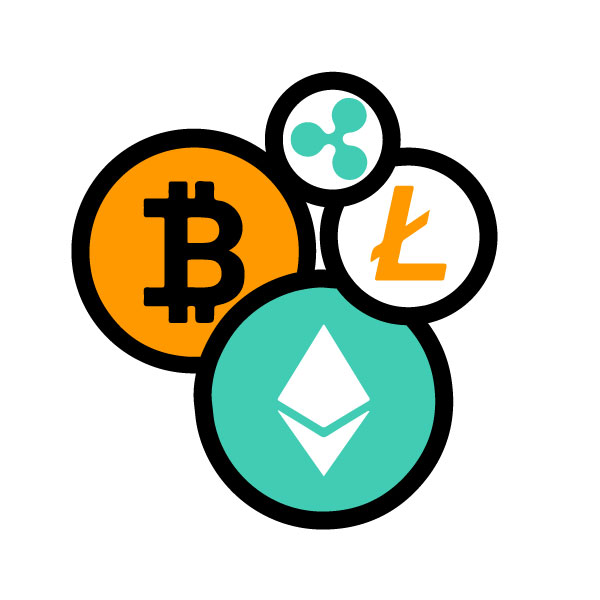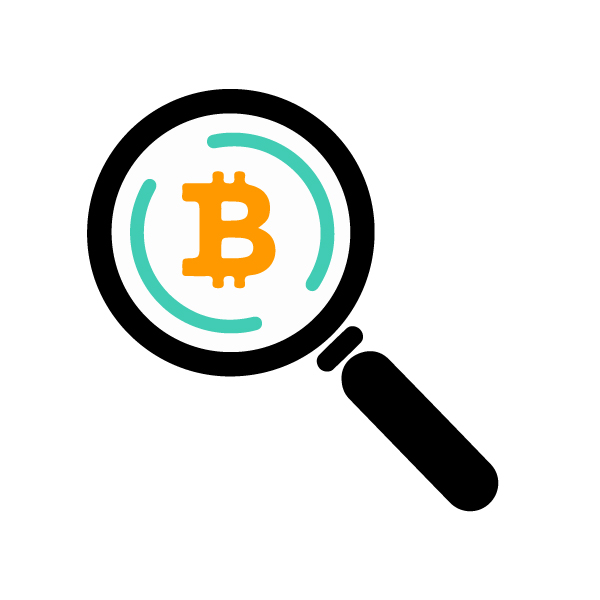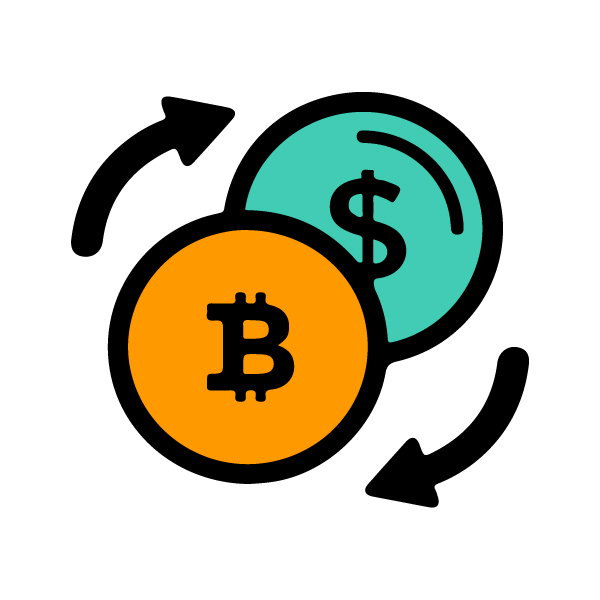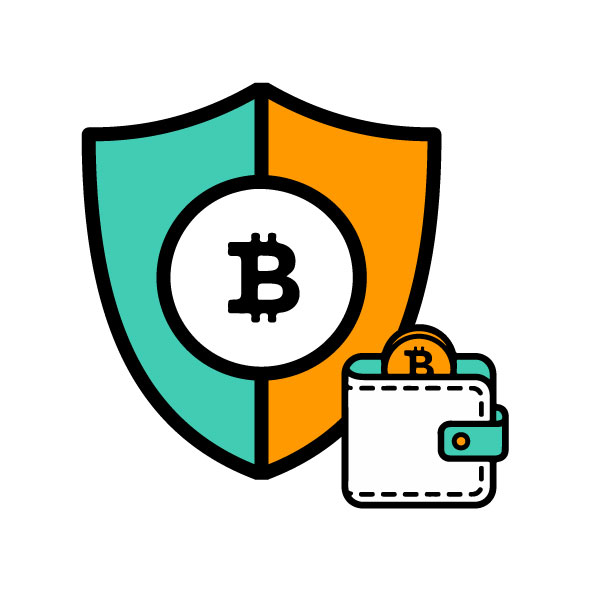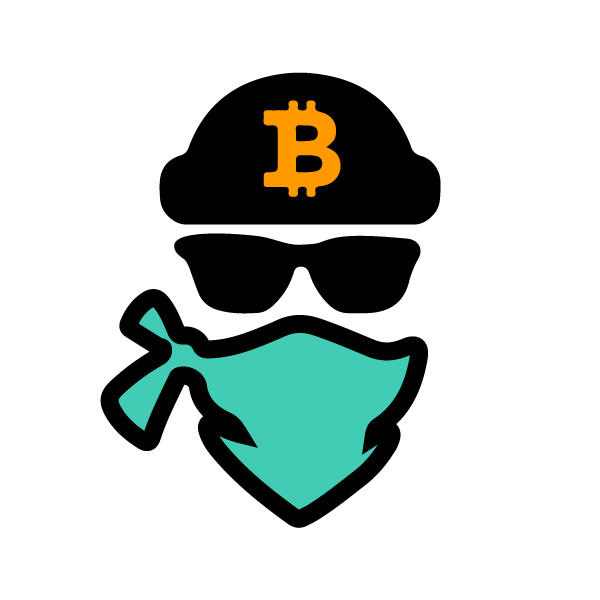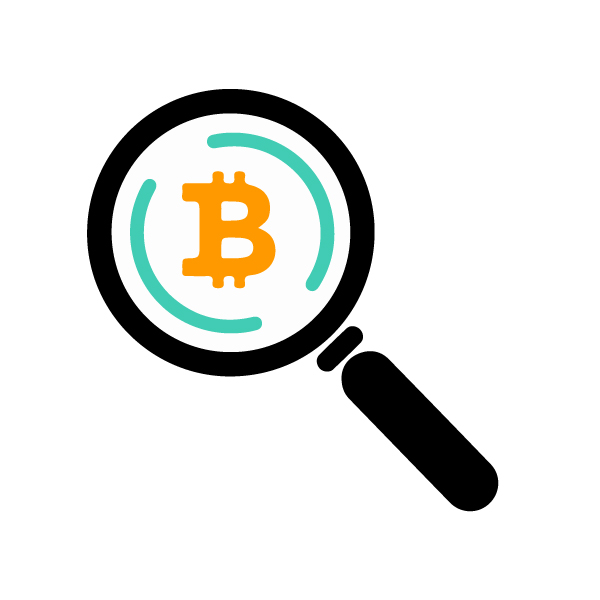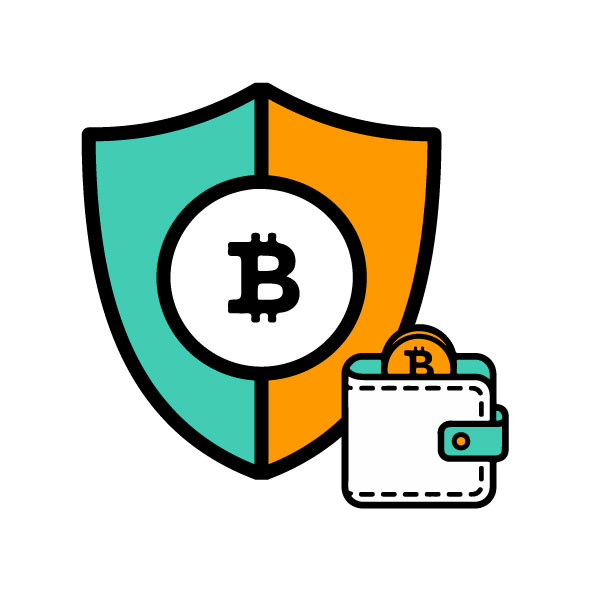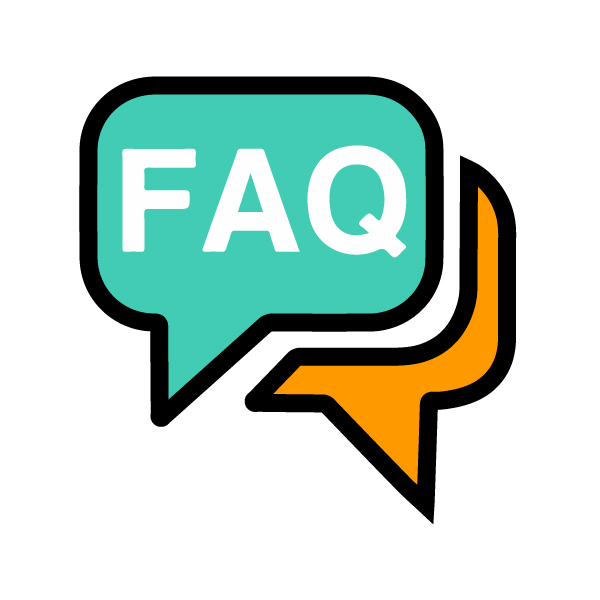Comment acheter du Bitcoin et d'autres cryptomonnaies en toute sécurité en 2021
Comment acheter du Bitcoin et d'autres cryptomonnaies en toute sécurité en 2021
Do you find it complicated to buy Bitcoin or other cryptocurrencies?
It's actually very simple! This site tells you everything you need to know to buy and secure bitcoins and other cryptocurrencies easily!
You can directly access the part you're interested in by clicking on the sections below:
Our recommendations to get started quickly:
Introduction to cryptocurrencies
What is cryptocurrency?
The cryptocurrency is a currency of exchange like the Euro or the Dollar.
You can buy goods and services in cryptocurrency.
However, it differs from these currencies in several respects:
- It has no physical representation. It's a virtual or digital currency. You don't own a cryptocurrency coin or banknote.
- It is generally not created by a central authority, making it theoretically immune to government interference and manipulation. It is said to be decentralized.
- It is exchanged peer-to-peer without intermediaries and transactions and balances are published on a public and decentralized database (or register) called the "Blockchain"
- It is secured by cryptography which makes counterfeiting almost impossible unlike counterfeit notes that can circulate in the monetary system.
The most well-known cryptocurrency is Bitcoin (BTC) but we can also cite Ether (ETH) which is the second cryptocurrency in terms of capitalization.
Read more: see the article "What is cryptocurrency?"
What is Bitcoin?
Bitcoin was created in January 2009 by a person or group of people whose identity we will never know and using the pseudonym "Satoshi Nakamoto".
It is the cryptocurrency with the largest capitalization in the world.
Bitcoin offers the promise of cheaper transactions in fees than traditional banks and especially the promise of a free currency not controlled by governments because it is operated by a decentralized authority.
The value of Bitcoin has been very volatile since its inception. She reached her first ATH (All Time High – Highest Level) in December 2017 with a token at $19,498 and surpassed it in November 2020 by reaching $19,832. Then more recently in early 2021, the value of Bitcoin reached $42,000.
Why buy cryptocurrency?
Buying cryptocurrency is simply a way to diversify your wealth and easily send or receive money without constraint.
Here are the pros and cons:
Benefits:
- Cryptocurrencies are not dependent on central banks, which protects them from manipulation and bans on use
- These are concrete and effective alternatives to the traditional banking system because they allow money to be exchanged globally, quickly, without intermediaries, with reduced fees and without caps or minimums.
- They are designed for the Internet, which makes them almost impossible to stop because all The Internet would have to be blocked or broken down
- There is total transparency of transactions, which makes it possible to be sure that the buyer has the required balance on his wallet for the property he must buy for example
Disadvantages:
- The value of cryptocurrencies is very volatile, it can vary up or down from 30% to 40%
- Cryptocurrencies are not yet very democratized, making their use quite limited currently outside the Internet
What is a cryptocurrency wallet?
When we talk about cryptocurrency, it is necessary to understand what a cryptocurrency portfolio is or more commonly called "Wallet".
A cryptocurrency wallet is a secure digital wallet that is used to protect your cryptocurrencies. Specifically, it protects your private key because your cryptocurrencies are hosted on the Blockchain.
It is made up of two elements:
- A public address: it is your ID, a kind of RIB, that you communicate to people so that they can send you cryptocurrency.
- A private key: it's the equivalent of your credit card code, it's necessary to get funds out of your wallet. You must never communicate it.
Some wallets are designed for a single cryptocurrency, others can be used for many of them. For example, you need a Bitcoin wallet to buy Bitcoin and an Ethereum wallet to buy Ether but also many other cryptocurrencies that work on this Blockchain.
You may have total control over your portfolio or you may have to be forced to delegate it as on centralized exchange platforms.
Total control of your portfolio is materialized by the possession of its private key.
This private key that you are the only one who knows is required to validate a cryptocurrency shipment from your wallet to another portfolio.
There are several types of portfolios: For more information: see the article "Portfolios"
Choosing an Exchange
What is an Exchange?
An Exchange is a platform that allows you to exchange fiduciary currency for cryptocurrencies and cryptocurrencies between them in the case of centralized Exchanges (CEX) or allowing you to exchange only cryptocurrencies between them in the case of decentralized exchanges (DEX).
It's a website or a mobile app.
To be able to buy on a centralized exchange platform, you must register and do a KYC (Know Your Customer) which is an identity check. It is a process in which you are asked to provide a valid ID and take a live photo of yourself to prove that you are the right person and that there is no impersonation.
Payment methods and fees on Exchanges
Once this identity check is done, you can purchase cryptocurrency directly with your credit card or by feeding your account by bank transfer.
Transaction fees are retained during this exchange and vary according to the exchange platforms. Therefore, you have to choose your Exchange to limit these costs, which are calculated on a percentage of the transaction carried out. Bank transfers are cheaper or free but are slower.
Warning: some banks block payments to exchange platforms.
If this is the case with your bank, really consider switching banks because no one should tell you what you owe or you should not buy with your money.
We recommend the Boursorama online bank.
The security of the Exchange
Before choosing an Exchange, make sure it has a good level of security and also offers security features to protect your account.
To consider an Exchange as serious, it must have been audited by third parties on security standards and offer at least multi-factor authentication to protect your account.
Comparison of Exchanges
Here is the list of centralized Exchanges that we have validated and recommend:
| Binance | Cornerbase | Etoro | FTX | |
| Cryptos and buyable corners | 307 | 49 | 14 | 244 |
| Security | Excellent | Excellent | Excellent | Excellent |
| fresh | 0.1% | 1,49% | From 0.75% to 5% | From 0.02% to 0.07% |
| Services |
Purchase of cryptos, staking, savings, borrowing |
Purchase of cryptos, staking | Buying cryptos | Buying cryptos |
| Note | ||||
| Coupon | 20% reduction in lifetime costs | €8.62 in Bitcoin bonuses on your first cryptocurrency purchase of more than €86.2 | $50 bonus on your first purchase of $100 or more | 5% reduction in lifetime costs |
| Visit the site | Visit the site | Visit the site | Visit the site |
Steps to buying cryptocurrencies
You've never bought a cryptocurrency and you're wondering how to do it?
No problem! We explain step by step the different steps to buy cryptocurrency below:
- 1. Préparation
- 2. Création d'un compte sur un exchange
- 3. Validation du KYC
- 4. Achat de cryptomonnaies
- 5. Visualisation de vos cryptomonnaies
This is the most important step to not get stuck in the buying process.
Make sure you have:
– a password manager to generate a complex and unique password.
– a valid email address. You can also create a new one that will be dedicated to managing your accounts on exchanges.
– a dual-factor authentication application on your smartphone (Google Authenticator, Microsoft Authenticator, …)
– valid identification (identity card, passport, driver's license)
– (advised) a cryptocurrency wallet, preferably a Hardware Wallet, to transfer purchased cryptocurrencies
– your credit card to make the purchase
Visit the website of one of the Exchanges you have selected from our recommendations:
How to register on Binance:
Click "Register," "Start" or "Create an Account" at the top right of the page.
Fill in the requested fields to create your account and choose a complex and unique password dedicated to this Exchange (generated by the password manager).
Check the box to accept the Site Terms of Use and Validate. You will then receive an email with a confimation link or code.
Depending on the site, safety recommendations can be posted. Read them carefully.
Then enable dual-factor authentication in your account profile in the security part.
How to register on Coinbase:
Check your identity so you can start buying cryptocurrencies.
You are invited to provide your personal information and send or take a live photo of one of your identity documents (Passport, ID card, driver's license).
The validation by the KYC Exchange may take more or less time depending on the Exchange and you will be notified by email.
That's it, the KYC is validated!
You can now buy cryptocurrency.
Have you selected the cryptocurrency you want to buy? Very well! Let's take the example of Bitcoin.
To buy cryptocurrency, you have two options (we have detailed guides here):
1) Pay directly in a bank card the cryptocurrency of your choice: this is the simplest but additional fees apply:
Buy with your credit/debit card on Binance:
⇒ Click top right on "Buy cryptos" and select "Credit/Debit Card"
⇒ Enter in the right box the Euro amount you want to spend and select the Bitcoin in the drop-down list below
⇒ Click on the yellow frame "Buy BTC"
⇒ Inform your credit card information and perform the 3DS security check
Buy with your credit/debit card on Coinbase:
⇒ Click "Buy/Sell" at the top right
⇒ Click "Add a payment method" in the popup that appeared
⇒ Select "Bank Card"
⇒ Inform your credit card information and click "Add a card"
⇒ Enter the Euro amount you want to spend and select Bitcoin from the drop-down list
⇒ Click "Buy Bitcoin"
2) Feed euro vote account by transfer to the exchange to then be able to buy cryptocurrency.
Buy by bank transfer on Binance:
⇒ Click top right on "Buy cryptos" and select "Bank Deposit"
⇒ Enter in the right frame the Euro amount you want to deposit
⇒ Click on the yellow "Continue" frame and click "Confirm" in the frame stating that only a transfer from an account in your name will be accepted
⇒ From your banking app, add a new beneficiary with the information shown in the box to the right of the screen and make sure you name it "Binance"
⇒ Then transfer to "Binance" the amount you have chosen before and indicate in a transfer reference or commentary the "Reference Code" that is shown to the right of the screen
⇒ Wait until Binance receives funds
⇒ Once the funds have been received, click on "Buy cryptos" at the top right and select "Cash Sale"
⇒ Enter in the right box the Euro amount you want to spend and select the Bitcoin in the drop-down list below
⇒ Click on the yellow frame "Buy BTC"
Buy by bank transfer on Coinbase:
⇒ Click "Buy/Sell" at the top right
⇒ Click "Add a payment method" in the popup that appeared (if you've already added a credit card, go to the settings then "Payment Methods" and click "Add a payment method")
⇒ Select "Euro Bank Account"
⇒ Inform your bank account information and click "Check your account"
⇒ Click "Check Now"
⇒ From your banking app, add a new beneficiary with the information shown in the box to the right of the screen and make sure you name it "Coinbase"
⇒ Then transfer a small amount to "Coinbase" and indicate in a transfer reference or commentary the "Reference Number" which is shown at the top in blue
⇒ Wait until Funds are received by Coinbase and account validation
Your content goes Here. Edit or remove this text inline or in the module Content settings. You can also style every aspect of this content in the module Design settings and even apply custom CSS to this text in the module Advanced settings.
How do you secure your cryptocurrencies?
To secure your cryptocurrencies, follow the following best practices:
Be the owner of your private keys
"Not Your Keys, Not Your Coins" – You don't own your private keys so you don't own your cryptocurrency.
Choosing to store your cryptocurrency on an exchange platform is a risk to be measured. Although exchange platforms are regulated, audited, certified, insured, 100% security does not exist.
Several exchange platforms have already been hacked. The cryptocurrency they stored for their client was stolen by the hackers and sent to their wallets. Because transactions are irreversible, it is impossible to recover the loot and hackers are very difficult to identify and apprehend.
If the exchange platform is not reimbursed by the insurance or if it does not provide a reserve fund for this type of incident, then you will only have your eyes to cry. In fact, when you sign up for the exchange platforms, they absolve themselves of this responsibility.
Do not disclose your private keys and passphrases under any circumstances
Your private keys are used to validate a cryptocurrency shipment from your wallet. If someone else knows her, then they will be able to make transactions without your consent. Once a transaction is completed, it is irreversible.
No one will ever ask for your private key. No one!
If someone asks you, it is an attempt to steal your cryptocurrencies.
Your passphrase allows you to restore your wallet if you've ever lost it. If someone other than you comes into his possession, he becomes master of your portfolio.
Have a Wallet hardware to store your private keys and protect your passphrase
There are several types of wallets but the most secure are the Cold Walets because they are not connected to the Internet.
In the Cold Wallets category, it is advisable to choose a Hardware Wallet.
A Hardware Wallet is a small device with a screen and keys that is used to generate your public address and store your private key. So when you want to do a cryptocurrency sale or exchange action, you have to physically approve it on this small device. This means that someone who doesn't have access to your Wallet Hardware won't be able to steal your cryptocurrencies.
Here's a comparison of the best Hardware Wallets on the market:
| Ledger Nano S | Ledger Nano X | Trezor One | Trezor Model T | |
| Release date | 2016 | 2019 | 2013 | 2018 |
| Cryptos and supported corners | 1500+ | 1500+ | 1000+ | 1000+ |
| Connectivity | USB Micro-B | USB-C | USB Micro-B | USB-C |
| Bluetooth | x | ✓ | x | x |
| screen |
✓
|
✓ | ✓ | ✓ |
| Size | 57 x 17.4 x 9 mm | 72 x 18.6 x 12 mm | 60 x 30 x 6mm | 64 x 39 x 10 mm |
| weight | 16g | 34g | 12g | 22g |
| Other benefits | Stores between 3 and 20 applications | Stores up to 100 apps | Can be used as a double-factor | Stores your passwords and can be used as a double-factor |
| Price | €59 | €119 | €59 | €192.39 |
| Buy | Buy | Buy |
When you start your Wallet Hardware, a passphrase will be generated. It's a 24-word suite that you need to write down and store carefully. This passphrase allows you to restore your wallet to another Hardware Wallet if you ever lost your Wallet Hardware. Don't share it with anyone.
Warning: Use the links above to make sure you buy your Hardware Wallet directly from the manufacturer.
Don't buy Hardware Wallet on Amazon, Leboncoin or Ebay as they may have already been booted and you wouldn't be the only one who knew about the passphrase. Also check when delivery that it is properly sealed.
Use a different password on each exchange platform
You may already know this, but you need to use a different and complex password for each site you're signing up for.
If you don't do it and one of the sites you're registered on is hacked, then all accounts you've used the same password for are compromised.
Remembering the password of each account is humanly not possible.
In order to facilitate the management of these passwords, it is highly advisable to use a password manager.
Here's a list of the best-known password managers you can use:
- Lastpass
- DashLane
- Bitwarden
Enable dual-factor authentication on exchange platforms
Even if you have a hardware wallet to store your private keys, you must use an exchange platform to buy cryptocurrencies. Often, your credit card is registered there to make it easier to purchase.
Dual-factor authentication is a method that adds a layer of protection to your account.
In addition to your login and password, you receive a code via SMS or in an app that you need to provide to prove that you are the one who connects to your account.
The best-known free dual-factor applications are:
- Google Authenticator
- Microsoft Authenticator
Avoid scams and PIRATAGES
Check out the AMF blacklist
The Financial Markets Authority lists the players on the blacklists, having been the subject of a warning issued by the Financial Markets Authority and/or usurping a regulated player.
Fake Exchanges or Fake Mobile Apps
These are copies of legitimate sites or legitimate applications.
Before you provide your credentials on a site, check the URL of the site and do not log in to an Exchange if you are on a public WIFI without first turning on your VPN.
Before you download a mobile app, make sure it's the official app, making sure the one who released the app is the right one.
False pre-sales
New cryptocurrencies are being created all the time. Sometimes you can participate in a "fundraiser" to facilitate the development of this cryptocurrency. It's called a "Raindrop." It's perfectly legal. During a Raindrop, you have the option to buy tokens from this new project at a discounted price during a pre-sale.
This attracts scammers who make fake giveaway. In reality, you will never receive the tokens.
So to protect yourself from this, it is essential to learn about the seriousness of the project.
Social media phishing
This can be a fake social network account that attempts to usurp the identity of a person who has a high level of public authority.
For example, this fake account publishes a post asking to send a sum of cryptocurrency to a public address of a cryptocurrency portfolio, promising that it will return twice the amount. Which he will obviously never do.
But it can also be a real account of a personality who has been hacked and who spreads this kind of message. It happened in 2020 on Twitter! The accounts of Elon Musk, Joe Biden, Barack Obama, Kanye West and Kim Kardashian were hacked and more than 15 bitcoins were recovered by the hackers.
Don't get it. Humans are generous, but some things are too good to be true.
Finally, it can also take the form of spoofing a support account from an Exchange platform.
Copy-and-paste malware
This type of malware can replace the data you copied and pasted that are stored in your paperweight.
Their goal is to replace the address with theirs when what you want for example fare a withdrawal of an Exchange platform and send it to your cryptocurrency portfolio or simply send cryptocurrency to someone.
Be careful and check all the characters in the destination address before validating the transaction.
To avoid them, install only apps that you have uploaded to official sites that you trust.
Phishing emails
These are emails you receive whose technique is to ask you to download an app update or quickly log in to your account via a link in the email to avoid losing your funds.
The theme used is often urgency or reward.
Don't fall for it:
⇒ Check the issue address
⇒ Check the Ortograph
⇒ Check the link by flying over it with your cursor
⇒ Don't open attachments if you have any doubts
⇒ Activate anti-phishing code on platforms that offer it
⇒ Contact Exchange Support if in doubt
The Pyramids of Ponzi
Before investing in a cryptocurrency, find out because many cases of Ponzi schemes have been identified in the world of cryptocurrencies.
A Ponzi scheme is a strategy that yields returns to older investors with new investors' money.
But this is not a system that has appeared with the birth of cryptocurrencies. It is a system that has been around for decades and has been applied to cryptommaies to take advantage of the credulity of some investors.
Ransomware
Ransomware is malware that, once it has infected a device, will make the data unreadable by encrypting it. In order to regain access to this data, the creator of Ransomware will ask you for a ransom.
This can be very serious for you if you have sensitive information like your password manager's database, a private key to a wallet, … You can lose access to your cryptocurrencies!
To protect yourself from it:
⇒ Keep your operating system and apps up to date
⇒ Install an antivirus
⇒ Be vigilant before clicking on attachments or links in emails you receive
⇒ Make regular backups on an external hard drive so you can restore them if you are infected
Frequent questions
Comment revendre ses cryptomonnaies contre de la monnaie fiduciaire ?
Your content goes Here. Edit or remove this text inline or in the module Content settings. You can also style every aspect of this content in the module Design settings and even apply custom CSS to this text in the module Advanced settings.
Comment revendre ses cryptomonnaies contre de la monnaie fiduciaire ?
In case you sent your cryptocurrencies on a Hardware Wallet as we advised you, you must return the cryptocurrencies to a centralized Exchange and then you have to follow the same procedure as the purchase with the difference that you have to select "Sell".
Y-a-t-il des risques à investir dans les cryptomonnaies ?
The answer is Yes.
In fact, that is the answer for any type of investment. You should not invest more than you are willing to lose and the rule is not to put all your money in one basket.
You need to put in place a strategy to diversify your investments.
Je ne comprends pas tous les termes du monde de la cryptomonnaie. Comment faire ?
It's normal, don't worry! We've thought of you and created a glossary to help you understand just these terms.
You'll find it here.
Je ne suis pas un trader. Comment savoir à quel moment investir ?
Trading cryptocurrencies is a business. It takes a lot of work and experience to be profitable.
The best strategy to adopt is the Dollard Cost Average (DCA). This is simply to invest a fixed sum, for example 50 euros, every month on a cryptocurrency.

